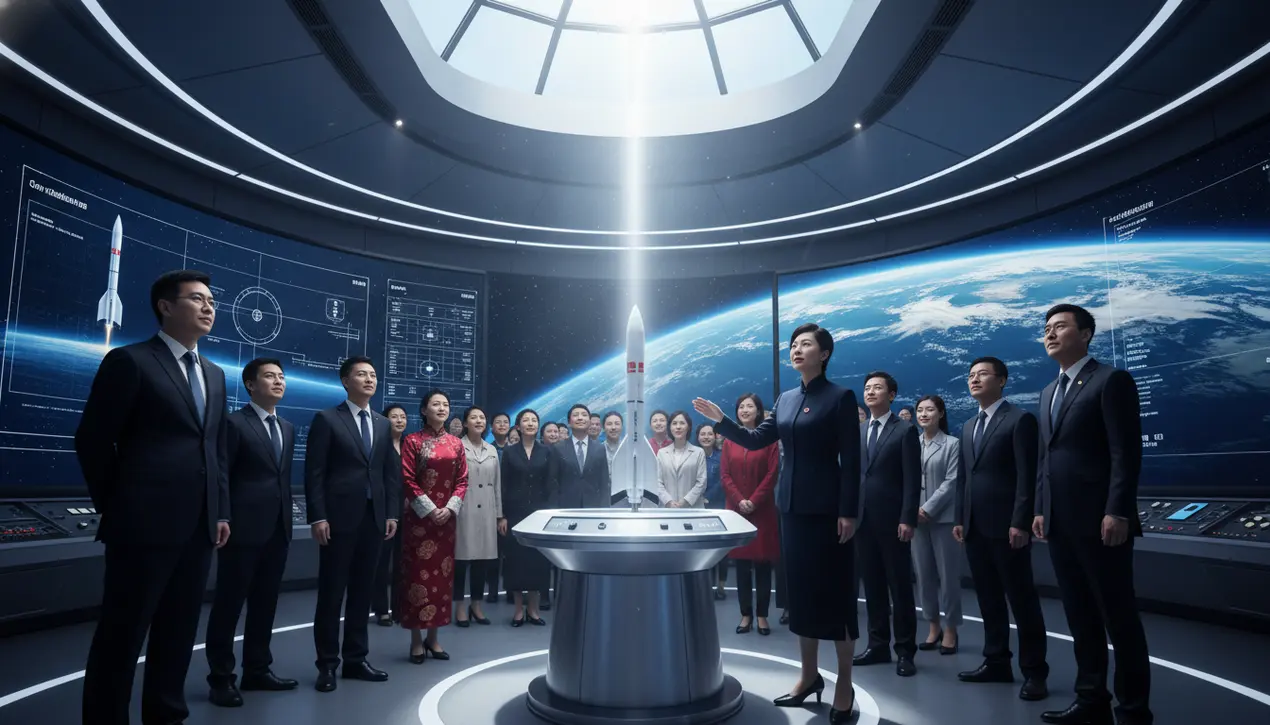
Sciencespace & astronomyRocket Launches
China's state space contractor announces tourism program plans.
TH
Thomas Green
2 hours ago7 min read1 comments
As the celestial arena once dominated by superpower rivalry transforms into a commercial frontier, China's state-owned aerospace behemoth, the China Aerospace Science and Technology Corp (CASC), is poised to launch its own space tourism programme, a strategic gambit that signals Beijing's determined entry into a market currently commanded by American titans like SpaceX and Blue Origin. This isn't merely about offering joyrides to the wealthy; it's a profound statement of technological parity and a calculated move in the new space race, where economic dominance is as crucial as scientific discovery.For decades, space was the exclusive province of government astronauts, a realm of national prestige and Cold War one-upmanship, but the paradigm has irrevocably shifted. The success of private American entities in not only launching payloads but also ferrying private citizens—from billionaire entrepreneurs to artists and engineers—on suborbital hops and orbital stays has fundamentally rewritten the rulebook, demonstrating that space is not just a government destination but a viable, burgeoning industry.CASC, the primary contractor behind China's ambitious lunar missions, Mars rover landings, and its own modular space station, is now leveraging its vast, state-backed engineering prowess to capture a slice of this nascent market. The details, to be unveiled at the China Hi-Tech Fair, are anticipated to outline a phased approach, likely beginning with suborbital flights that offer minutes of weightlessness and breathtaking views of the curving Earth against the black void of space, before potentially progressing to orbital stays aboard China's newly operational Tiangong space station.This ambition mirrors the vision of pioneers like Elon Musk, who sees a multiplanetary future for humanity, but it is filtered through a distinctly state-capitalist model, where national strategy and commercial venture are inextricably linked. The implications are staggering, extending far beyond tourism.A successful Chinese space tourism programme would validate the reliability and reusability of its launch vehicles, create a new revenue stream to fund further deep-space exploration, and project an image of a modern, technologically advanced China capable of competing with the West on every front. However, the path is fraught with challenges, from ensuring the absolute safety of civilian passengers—a non-negotiable requirement for public and regulatory confidence—to navigating the complex web of international space law and liability.Furthermore, the cost, initially expected to be prohibitively high, will need to follow the downward trajectory seen in the US to achieve any semblance of accessibility. The announcement also raises geopolitical questions; will this new commercial frontier become another domain of cooperation or contention? As CASC prepares to open the starry heavens to its citizens, the world watches, witnessing not just the birth of Chinese space tourism, but the acceleration of a new, multifaceted space age where the final frontier is no longer just explored, but inhabited, industrialized, and experienced by an ever-widening circle of humanity.
#featured
#China
#space tourism
#CASC
#commercial spaceflight
#SpaceX
#Blue Origin
#market competition
Stay Informed. Act Smarter.
Get weekly highlights, major headlines, and expert insights — then put your knowledge to work in our live prediction markets.
Related News
Comments
Loading comments...
© 2025 Outpoll Service LTD. All rights reserved.